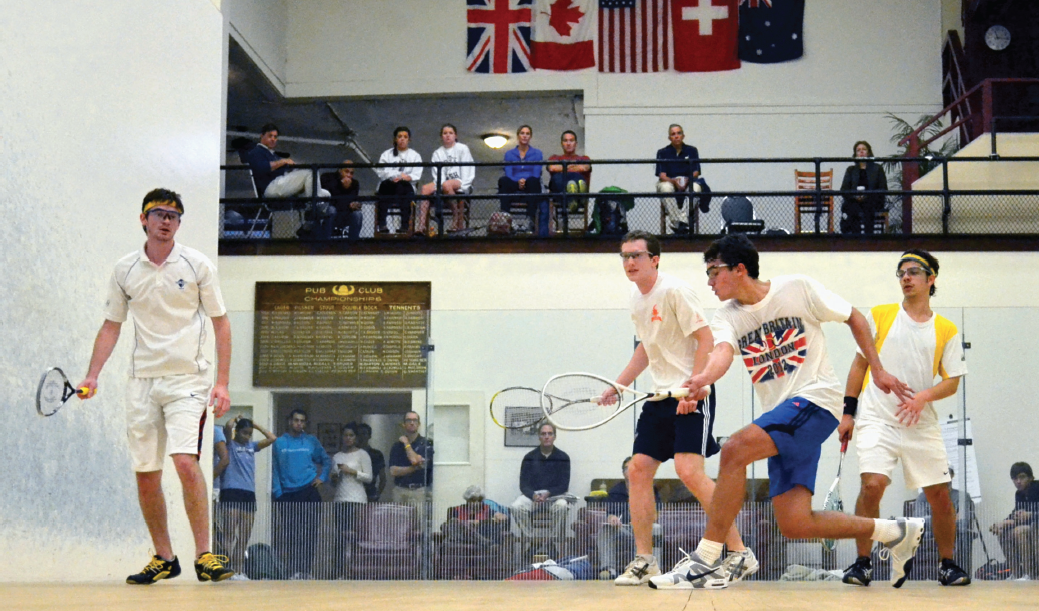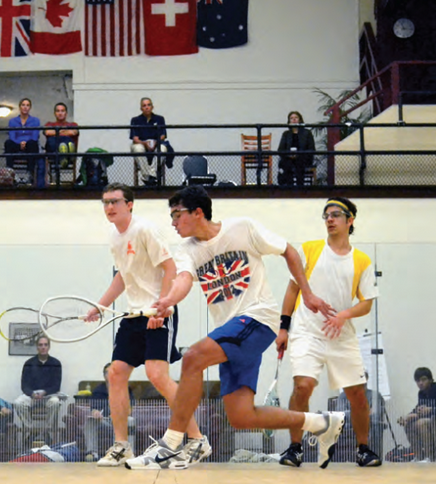
By James Zug
Preston Quick directed the 28th annual Butcher/Ball/Ketcham National Intercollegiate Squash Doubles Championships in Philadelphia during the U.S. Open’s first weekend in October. The Racquet Club of Philadelphia again hosted, with Germantown Cricket Club providing two more courts. This enabled the Intercollegiates to offer a consolation for the first time, thus ensuring that every team got in at least two matches. Eleven schools made the journey: 20 men’s teams, four women’s and a surprising eight teams in the mixed. Like last year, the players had free tickets to the U.S. Open, allowing them to catch some great professional squash on the Saturday night.
The women’s round-robin was incredibly close with all three of the teams winning one and losing one match and it came down to points won to determine the winners: Ashley Tidman & Natalie Babjukova from Trinity. Colleen Fehm from Penn defended her mixed doubles title with a new partner this year, Daniel Judd. They beat Rachel Leizman & Dylan Ward from Princeton in a spirited four-game final.
In the men’s draw, history was made. Todd Harrity became the first player to ever win both the men’s intercollegiate singles (in 2011) and the doubles. Because Princeton won the national team title (in 2012), Harrity has now pulled off an unprecedented triple sweep of all possible national titles in college squash. In 2010 Harrity, playing with Kelly Shannon, was up in the finals only to lose to Penn’s Trevor McGuinness & Porter Drake. This year in the finals he and his partner Taylor Tutrone were facing Trevor’s younger brother Andrew & Hunter Beck from Navy. All four grew up playing doubles—Harrity at Merion Cricket, Tutrone at Meadow Mill, Andrew at Germantown and Merion and Hunter at Philadelphia Cricket—and so the pace was very high quality. Three of the four games were blow-outs, but the match came down to the end of the third game. It was 7-all, 10-all, 11-all, and reached 14-all. In the style of doubles these days, the rule was no-set, next point wins. After a high-flying rally, Harrity snapped a very low forehand drop. McGuinness dove for it but was unable to come up with the ball.
It is the seventh time Princeton has won the intercollegiate doubles (Yale leads with eight). Since Princeton was the only school at the tournament that has a doubles court, this was not surprising. What was surprising was watching Harrity tie a bow on an incredible collegiate career that still has a season to run.





